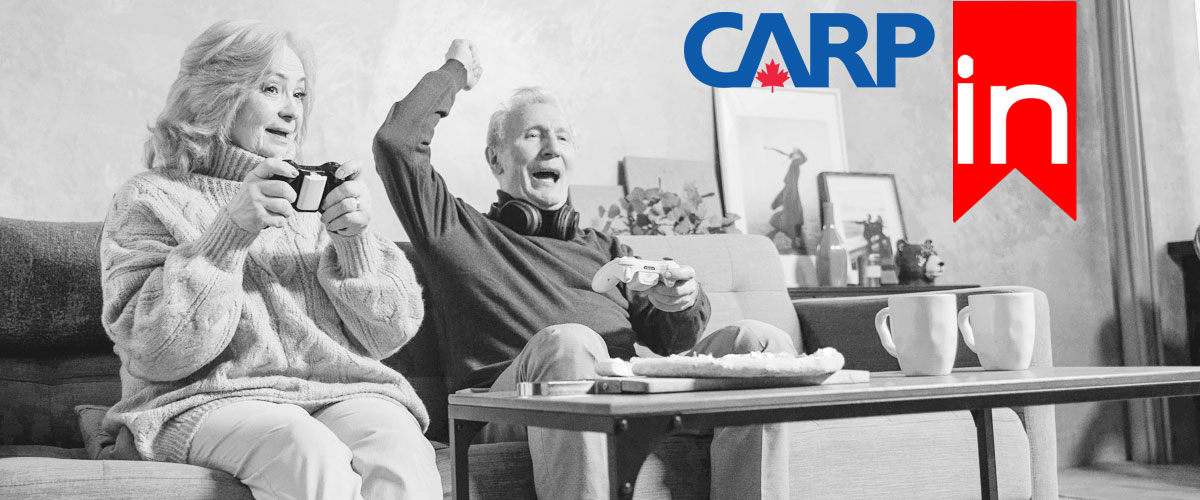Dehydration in older adults is a common, but often overlooked condition that can have serious health implications. As individuals age, their body’s ability to conserve water is reduced, and the sense of thirst becomes less prominent. These changes, along with factors such as chronic health issues and the use of certain medications, make elderly individuals particularly susceptible to dehydration.
Recognizing dehydration in the elderly is crucial, yet it can be challenging due to its subtle onset. Symptoms may manifest physically as dry mouth, fatigue, dark-coloured urine, and lightheadedness. Cognitive and behavioural symptoms such as confusion, irritability, and difficulty walking can also be indicative of dehydration.
Proactive hydration management is essential to prevent dehydration. Ensuring regular fluid intake, avoiding beverages that can exacerbate dehydration like those high in caffeine or sugar, and recognizing the early signs of fluid loss can help mitigate the risks. When needed, prompt treatment should be sought to replenish lost fluids and electrolytes.
Highlights
- Dehydration can pose significant health risks due to physiological changes and other factors.
- Symptoms include physical signs such as dry mouth and dark-coloured urine, as well as cognitive changes like confusion.
- Preventing dehydration requires regular monitoring of fluid intake and avoiding diuretic substances.
Understanding Dehydration In The Elderly
In the elderly, dehydration can be a serious health concern, influenced by various factors and manifesting through distinctive symptoms. It is crucial that caregivers and individuals recognize the signs early to prevent complications.
Causes And Risk Factors
Factors like medications, particularly diuretics, can increase fluid loss. Medical conditions such as diabetes or dementia can also hinder one’s ability to maintain proper hydration. It’s essential for seniors to drink adequate fluids to compensate for these factors.
- Medications: Diuretics, laxatives, and some blood pressure drugs.
- Medical conditions: Diabetes can increase urination, while dementia may impair thirst recognition.
- Advanced age: Decreased thirst sensation and kidney function.
Recognizing Symptoms
Early signs of dehydration should be promptly recognized to mitigate health risks.
- Dry mouth and dry skin are common initial indicators.
- Constipation and less frequent urination may signal inadequate fluid intake.
- Frequent episodes of low blood pressure and confusion might suggest advancing dehydration.
Effects Of Dehydration
- Kidney function: Compromised hydration can significantly burden the kidneys.
- Electrolytes: An imbalance can impact heart rhythm and muscle function.
- Chronic dehydration can also exacerbate low blood pressure, causing further confusion.
Physical Signs Of Dehydration
Dehydration can be identified by various physical signs indicating a significant loss of water in the body.
Skin And Mouth Indicators
One may notice that an individual experiencing dehydration has dry skin that lacks normal elasticity. A simple test involves gently pinching the skin on the back of the hand for about 3 seconds; if it does not return to its original state within 3 seconds, this signals dehydration. A dry mouth, often detectable through difficulty speaking or swallowing, is another clear sign. The visual sign of sunken eyes, and the absence of tears when crying, may further point to dehydration.
Urine And Kidney Function
Dark urine is often associated with dehydration; it should be light yellow to clear under normal circumstances. When dehydration persists, it can lead to serious kidney issues such as kidney stones or urinary tract infections due to concentrated urine providing a breeding ground for bacteria.
Musculature And Neurological Responses
Dehydration can trigger a variety of responses affecting the muscular and nervous systems. An individual may experience muscle cramps as a result of electrolyte imbalance due to fluid loss. Neurological symptoms such as dizziness, headaches, and tiredness are common, with severe dehydration potentially leading to fainting or altered states of consciousness. These are serious signs that necessitate prompt medical attention.
Behavioural And Cognitive Symptoms
Dehydration in the elderly has a direct impact on their behavioural and cognitive functions. Recognizing these signs is essential for prompt intervention to maintain their health and well-being.
Confusion And Cognitive Impairment
Confusion related dehydration can range from mild disorientation to severe cases of delirium. Memory problems are also common, as dehydration affects the brain’s ability to process and recall information. A dehydrated person might have a harder time with short-term memory tasks or may become easily perplexed during conversations.
- Confusion: Difficulty in understanding one’s surroundings or tasks.
- Memory Problems: Trouble with recall and processing new information.
- Delirium: Acute, severe confusion that develops rapidly.
These cognitive issues can sometimes be mistaken for dementia, which is a more chronic condition. Delirium, unlike dementia, is often reversible with proper rehydration and medical care.
Changes In Daily Functions
Dehydration may manifest as increased fatigue, reducing one’s ability to perform routine activities. Mobility can become compromised, leading to an escalated risk of falls. Furthermore, dehydration may exacerbate incontinence, adding another challenge to daily life and possibly leading to further health problems if not managed appropriately.
- Fatigue: Persistent tiredness and a lack of energy.
- Mobility: Reduced strength and balance, increasing fall risk.
- Incontinence: Loss of bladder control.
Regular monitoring for these symptoms can help identify dehydration early and prevent the associated risks with cognitive and functional decline in the elderly.
Managing Hydration
In addressing hydration for the elderly, one should consider practical hydration strategies, assess the role of diet, and develop consistent monitoring habits to ensure adequate fluid intake.
Hydration Strategies
Elderly individuals should be encouraged to consume fluids consistently throughout the day. Water is the best choice, but they can also obtain fluids from other sources like herbal teas or sugar-free drinks. Setting reminders, timers or apps that remind seniors to drink water can make hydration a routine rather than an afterthought.
Nutritional Considerations
A senior’s diet should include foods with high water content to aid in maintaining hydration. Fruits like watermelon, strawberries, and cantaloupe, along with vegetables such as cucumbers, lettuce, and celery, naturally increase water intake. Moreover, incorporating soups and broths into meals not only provides nourishment but also contributes to overall fluid consumption.
Monitoring And Habits
Regular monitoring of a senior’s hydration can be as simple as noting the frequency and colour of urination. Caregivers should encourage the elderly to develop the habit of drinking water and record their daily water intake, which supports both accountability and awareness. Creating a supportive environment where the elderly have easy access to water and are prompted to drink regularly can significantly impact their hydration status.
It is best to discuss recommendations for daily water intake with a doctor. By reviewing medical history, medications, and health conditions, they will be able to determine the proper intake for individual cases.
Treatment And Prevention
Effective management of dehydration in the elderly hinges on timely treatment and diligent prevention. Recognizing the signs swiftly allows for immediate care, which can be administered at home or by healthcare professionals, depending on the severity of dehydration.
Seeking Medical Help
Should the individual exhibit severe symptoms of dehydration, such as disorientation, rapid heartbeat, or severe lightheadedness, it’s crucial they seek medical care immediately. Dehydration treatment in a healthcare setting may involve fluid replacement through intravenous (IV) therapy. Doctors may also recommend hospitalization if the patient’s condition is particularly grave or if they have underlying health issues exacerbated by dehydration.
Home Remedies And Care
For milder cases, caregivers can administer care at home by offering small sips of water; they should insist on regular fluid intake. If the individual is not nauseous or vomiting, oral rehydration solutions or diluted sports drinks may be appropriate. Caregivers must ensure the drink isn’t high in sugar and should avoid caffeine and alcohol, as these can worsen dehydration.
Preventative Measures
Prevention is paramount. To keep up with the body’s fluid needs, individuals should:
- Drink small amounts frequently rather than large amounts less often
- Include foods with high water content, such as fruits and vegetables, in their diet.
- Be mindful of environmental factors like heat, which can increase water needs.
- Limit or avoid caffeine and alcohol, as these may lead to increased urine output and potential dehydration.
Dehydration For Older Adults
In older adults, recognizing the signs of dehydration swiftly is essential. Symptoms can manifest subtly with a dry mouth or fatigue, and escalate to more severe conditions such as dark-coloured urine or lightheadedness. It’s paramount for caregivers and individuals to stay vigilant and ensure adequate fluid intake to avoid the progression to severe dehydration, which can have serious health repercussions.
Preventive measures are equally important. They should ensure a regular water intake and avoid diuretics like soda and coffee. The use of clear, simple strategies, like keeping a water bottle at hand, is highly effective.
As dehydration in older adults can rapidly lead to serious consequences, including death, it’s crucial to take action at the earliest signs. Quick, appropriate interventions can make a significant difference, such as offering fluids and, if necessary, seeking medical attention for intravenous hydration.
With proper attention and proactive strategies, one can guard against the health threats of dehydration in the elderly. They should be treated with the care and regard deserving of any significant medical concern.



1 thought on “Recognizing The Warning Signs Of Elderly Dehydration For Better Care”